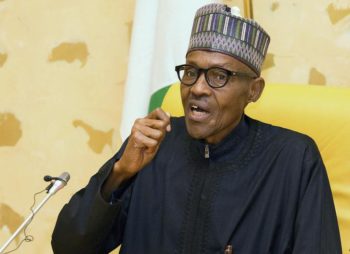
President Muhammadu Buhari on Monday set an ambitious target in his New Year message to end the importation of foreign parboiled rice as well as boost rail transportation in all the zones of the country.
He said the proposed end to rice importation is as a result of increased local yields.
“Two years ago I appealed to people to go back to the land. I am highly gratified that agriculture has picked up, contributing to the government’s effort to re-structure the economy. Rice imports will stop this year. Local rice, fresher and more nutritious will be on our dishes from now on,” he said.
Buhari said that Lagos-Kano Standard gauge line, which has the capacity to carry two million passengers per year and five million tons of cargo, would reach Ibadan from Lagos by the end of 2019.
He said the rail line was expected to give substantial boost to the country when completed.
The President also said that the construction of the Kano-Kaduna segment was expected to commence this year and reach Kaduna by the end of 2019.
He said that the two ends would be joined to ensure that there would be standard gauge railway across the main North-South trading route by the end of 2021.
According to him, the Abuja – Kaduna route will be boosted by additional rolling stock next Thursday to handle one million commuters annually.
“At the same time I have approved and negotiations will be concluded in the first part of this year for the Port Harcourt to Maiduguri line covering Aba, Owerri, Umuahia, Enugu, Awka, Abakaliki, Makurdi, Lafia, Jos, Bauchi, Gombe, Yola and Damaturu.
“The Abuja to Itakpe line will go through Baro and terminate in Warri with construction of a new seaport at Warri.
“Negotiations are also advanced for the construction of other railway lines, firstly from Kano to Maradi in Niger Republic passing through Kazaure, Daura, Katsina, Jibia to Maradi.
Buhari said that his administration was determined to link more Nigerian cities through functional modern rail systems in the next few years to give enormous boost to the social and economic life of our people.
He said that progress on Abuja Capital Light Rail had reached 98 per cent completion from 64 per cent completion stage in 2015.
According to him, this train service will stimulate economic activities in the Federal Capital and provide residents with an efficient and safe transportation system.
“Twelve railway sub-stations around the capital of over a 45.2 kilometre route will serve as a catalyst and a pull factor to the economy of the area.
“The Light Rail System will reduce traffic congestion and carbon emission in line with the Administration’s policy on climate change,” he said.